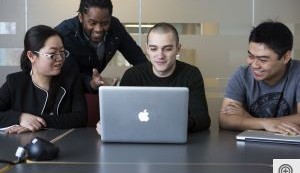You Cannot be Sirius…
on

Enginering researchers at the University of Michigan have been working on an open-source computing system which is similar to Apple’s Siri, Microsoft Cortana and Google Now. The system named Sirius is able to accept voice instructions, questions and even images and will provide answers in the form of the spoken word. The researchers plan to showcase their system on March 14th at a technology conference in Istanbul and they will release the software immediately afterwards.
Jason Mars, U-M assistant professor of computer science and engineering and co-director of Clarity Lab where Sirius was developed, described Sirius as the Linux of intelligent personal assistants. “Linux is a free computer operating system—a contemporary of Apple's OS X and Microsoft Windows. While it's used in just a sliver of desktops, it's said to have revolutionized computing. Linux has become the default way to run servers and mainframes and it's the foundation of Google's Android, now the most common operating system for tablets and smartphones. Unlike its expensive and locked-down commercial counterparts, Sirius will be free and can be customized. Now that the core technology is out of the bag, and we all have access to it, instead of making an app to run on the Apple Watch, for example, maybe I could make my own watch. We're very excited to see what the world comes together to build and learn with Sirius as a starting point."
Sirius is an end-to-end voice and vision personal assistant. It bundles speech recognition, image matching, natural language processing and a question-and-answer system that executes in the cloud. In its initial release, users can enter queries by talking to a device, or with a combination of speech and an image—maybe a photo of a restaurant with the question: "When does this place close?" That's not something current commercial systems can do.
"What we've done with Sirius is pushed the limits of the traditional intelligent personal assistant," said Johann Hauswald, a U-M doctoral student in Clarity Lab. "Not only can you interact with your voice but you can also ask questions about what you're seeing, which is a new way to interact with this type of device."
The demo version of Sirius is a talking Wikipedia. Researchers loaded it with a static version of the site and users can ask it factual questions. Go to the press release to find out more.



Discussion (0 comments)